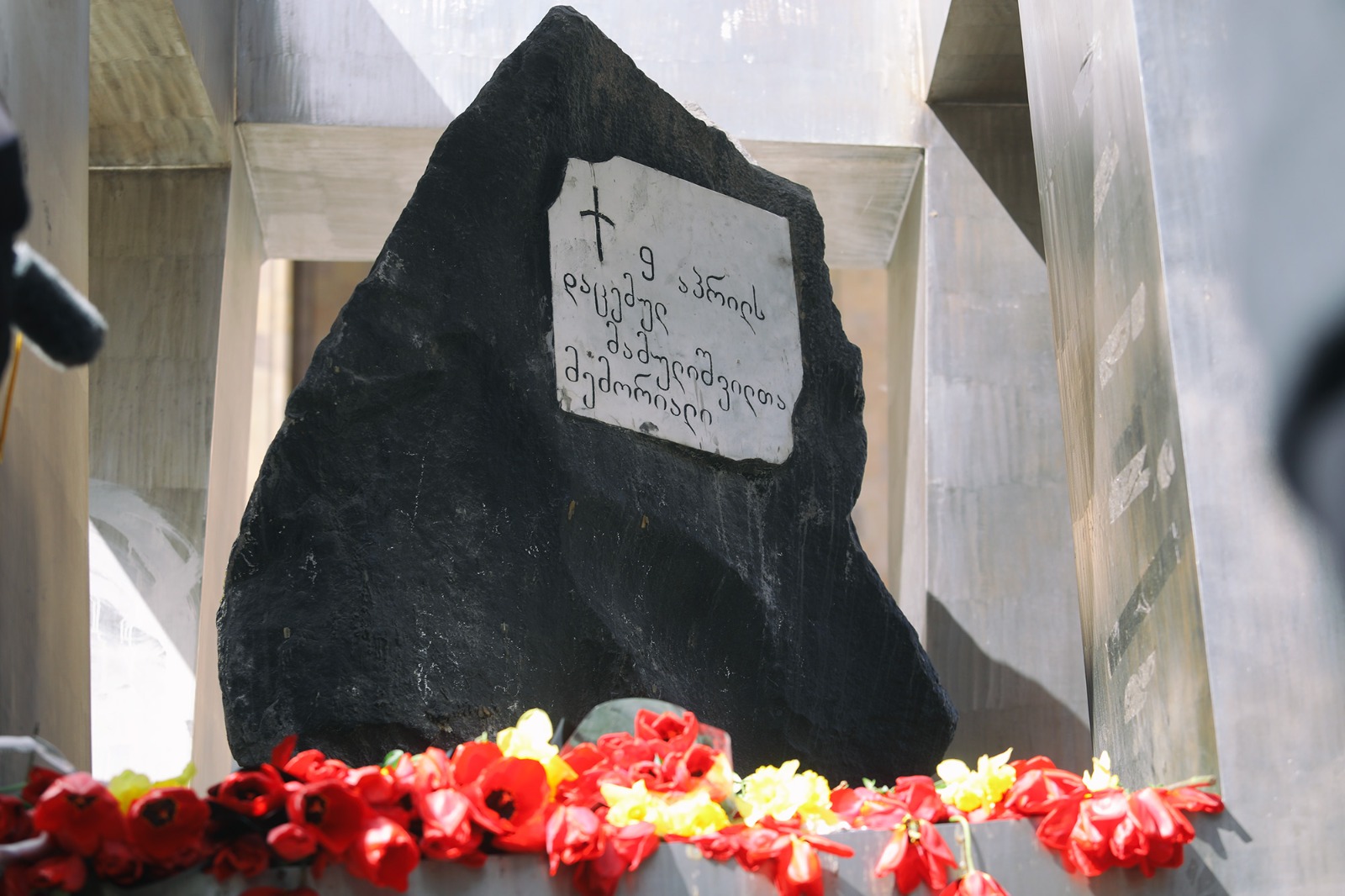Today, Georgia marks the 35th anniversary of the brutal suppression of pro-independence protests in Tbilisi by the Soviet army on 9 April 1989, which left 21 dead and hundreds injured by poison gas used by Soviet troops and beatings with sappers’ spades. Most of the victims were women.
In 1991, on the same day, following the defeat of the Communist Party by the pro-independence coalition in the polls in 1990, and the subsequent referendum on independence in March 1991, the Georgian parliament announced the restoration of Georgia’s independence.
The PM Irakli Kobakhidze took part in the commemoration ceremony, attended also by the Mayor of Tbilisi and representatives of the executive and legislative branches of government. Representatives of the opposition, the diplomatic corps and ordinary citizens paid tribute to the memory of the fallen victims of the April 9 massacre.
President of Georgia, Salome Zurabishvili paid tribute to the fallen on April 9, 1989 and made an emotional statement.
Salome Zurabishvili, President of Georgia: “Today, no matter how much we think that a great tragedy has happened, a really great tragedy, it is a day of great victory, the day when we should know that nothing can threaten Georgia and its independence. This is the day of the greatest victory for Georgia, for the independence of Georgia, and the meaning of this day is that nobody can threaten the independence of Georgia.”
President Zurabishvili drew parallels between the past and the present fight of Georgians for freedom and independence. She stressed: “And the fact that on 8 April some people dared to reintroduce Russian law is the biggest sign of their defeat. Anyone – today, tomorrow and the day after tomorrow – who comes to Georgia with the Russian flag, the Russian symbol and the Russian subjugation [intention] will never prevail…We have to know what we want: do we want what happened on April 9, [1989, ]or what happened in April 9, 1991 – that is the choice for Georgia, – either independence or slavery, either Europe or Russia. We know what we want.”
Shalva Papulashvili, Parliament Speaker: “Along with the worst tragedy, April 9 is the day of self-determination and unity of the Georgian nation. It excites us with its unanimity and spirit, attitude and love, and at the same time it makes us think, teaches us and warns us. April 9, which is the day of restoration of Georgian statehood and independence, will remain a symbol of victory and unity in the history of our nation…”
Tbilisi mayor, Kakha Kaladze wrote on Facebook: “April 9 is one of the tragic dates in the recent history of Georgia. On the other hand, this day is a symbol of the nation’s awakening, unity, and struggle for freedom. Georgia gained independence exactly 2 years after this tragedy…This date will once again remind us of the strength of our unity, which we should direct towards the development and consolidation of the country.”
Opposition leaders paid tribute to the victims of the Soviet massacre.
Badri Japaridze, Lelo: “Today is a tragic day in the history of our country, but it is also a day of victory. On 9 April 1989, we witnessed the sacrifice of our compatriots for freedom, but in 1991 this sacrifice resulted in the restoration of our country’s independence. … Of course, today reminds us once again that we have no right to rest until the final goal is achieved. We will make sure that our country is freed once and for all from the pressure that we have been under all these years from our northern neighbour, Russia.”
Giorgi Gakharia, “For Georgia: “This is the most difficult day in recent history, but… it gives hope, especially when we hope for the independence, unity and reunification of the country. If we are confused about who is our enemy and who is our lover, then of course these days are a bit sad, but I think 35 years have passed and we have to finish the great national movement that these people started.”
Gigi Tsereteli, European Georgia: “”Today we remember these people, and at the same time, the consolidation of this very difficult and proud day for our country has shown that there is no power, if it is the decision of the people, if there is energy in the nation, its independence is not in danger.”
Nika Gvaramia, Ahali: “Georgia already has independence, but [Georgia] must finally gain freedom, freedom from Russia. Gaining independence from Russia does not mean ultimate freedom from Russia. We have been fighting for this for a long time. As long as it takes, we will fight for this, not only our generation, the generations older than us, but even more fervently the generations after us.”
